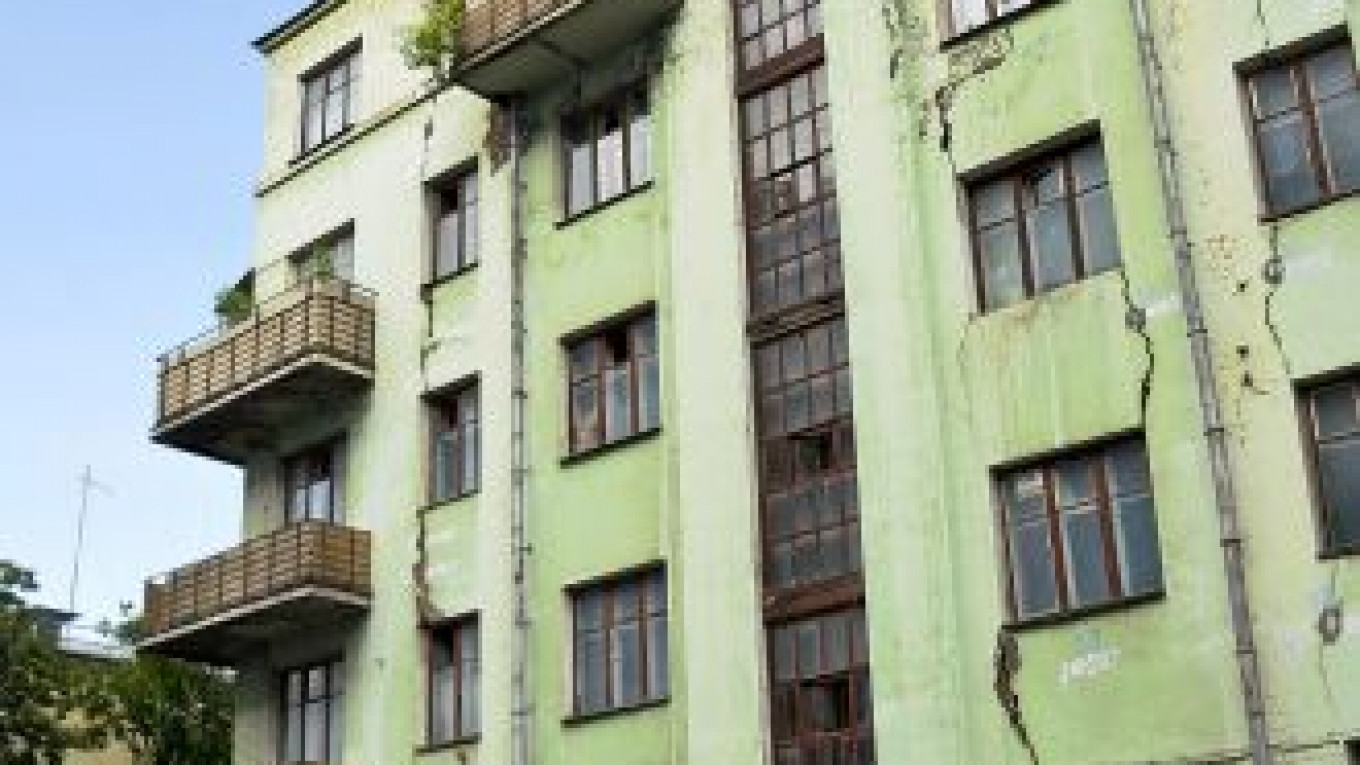Russian property developers have created a lobbying group to promote their interests on the government level, the first attempt to unite their efforts in many years.
The group, called the National Union of Real Estate Developers, was set up at the Congress of Russian Developers, held in Moscow on Monday. The association will unite 370 market players from 76 regions.
"Our main goal is to bring together the best industry professionals," said Leonid Kazinets, a senior member of the Russian Union of Industrialists and Entrepreneurs, who was elected head of the association Monday.
Kazinets, who has worked in the construction business since 1993, quoted the Bible, saying that the group's goal was to separate the sheep from the goats.
He was referring to shady companies that still find ways to operate on the lucrative Russian real estate market despite the government's efforts to make it more transparent.
With real estate prices in Moscow skyrocketing every year, Russia is still behind world leading countries in the average number of square meters of housing per capita. Currently, it amounts to 22 square meters, compared with 60 square meters in Germany.
According to Regional Development Ministry figures, 99.3 million square meters of housing, or 3.2 percent of all housing in the country, is obsolete.
Both members of the new lobbying group and governmental officials present at Monday's congress said that by setting up the union they were trying to implement President Vladimir Putin's post-election order regarding the improvement of the country's housing sector.
The order, signed in May 2012, envisages creating conditions to allow families to get free plots of land, building cheap housing and providing 60 percent of Russians with better housing.
But with some experts describing Putin's order as populist, industry players say that they are having a hard time acquiring land plots, despite the fact that millions of hectares belong to various state organizations that don't use them.
"Those are abandoned territories where nothing has been growing and nothing has been built for years," Kazinets said. He said the group would work with regional governors in an effort to acquire such land for construction.
The creation of the group was welcomed by Alexander Braverman, the head of the Federal Housing Foundation, who said it would help the foundation oversee housing construction.
But Braverman's own foundation, created in 2008 to help developers to prepare paperwork and infrastructure for the construction projects, was criticized by Regional Development Minister Igor Slyunyayev at the congress.
He said the 1.5 million of housing built with the foundation's help since its creation is "too small."
"Would it be better for you to concentrate on preparation of land plots and infrastructure?" Slyunyayev said, with the audience applauding him.
One of the foundation's tasks is the organization of state land auctions for potential developers. Braverman confessed that his agency had often encountered bogus bidders, some of whom had 10,000 rubles ($313) on their accounts.
He said that, after the bidders did not honor their contracts to develop the land they bought, his foundation had to auction it again.
Contact the author at
A Message from The Moscow Times:
Dear readers,
We are facing unprecedented challenges. Russia's Prosecutor General's Office has designated The Moscow Times as an "undesirable" organization, criminalizing our work and putting our staff at risk of prosecution. This follows our earlier unjust labeling as a "foreign agent."
These actions are direct attempts to silence independent journalism in Russia. The authorities claim our work "discredits the decisions of the Russian leadership." We see things differently: we strive to provide accurate, unbiased reporting on Russia.
We, the journalists of The Moscow Times, refuse to be silenced. But to continue our work, we need your help.
Your support, no matter how small, makes a world of difference. If you can, please support us monthly starting from just $2. It's quick to set up, and every contribution makes a significant impact.
By supporting The Moscow Times, you're defending open, independent journalism in the face of repression. Thank you for standing with us.
Remind me later.






